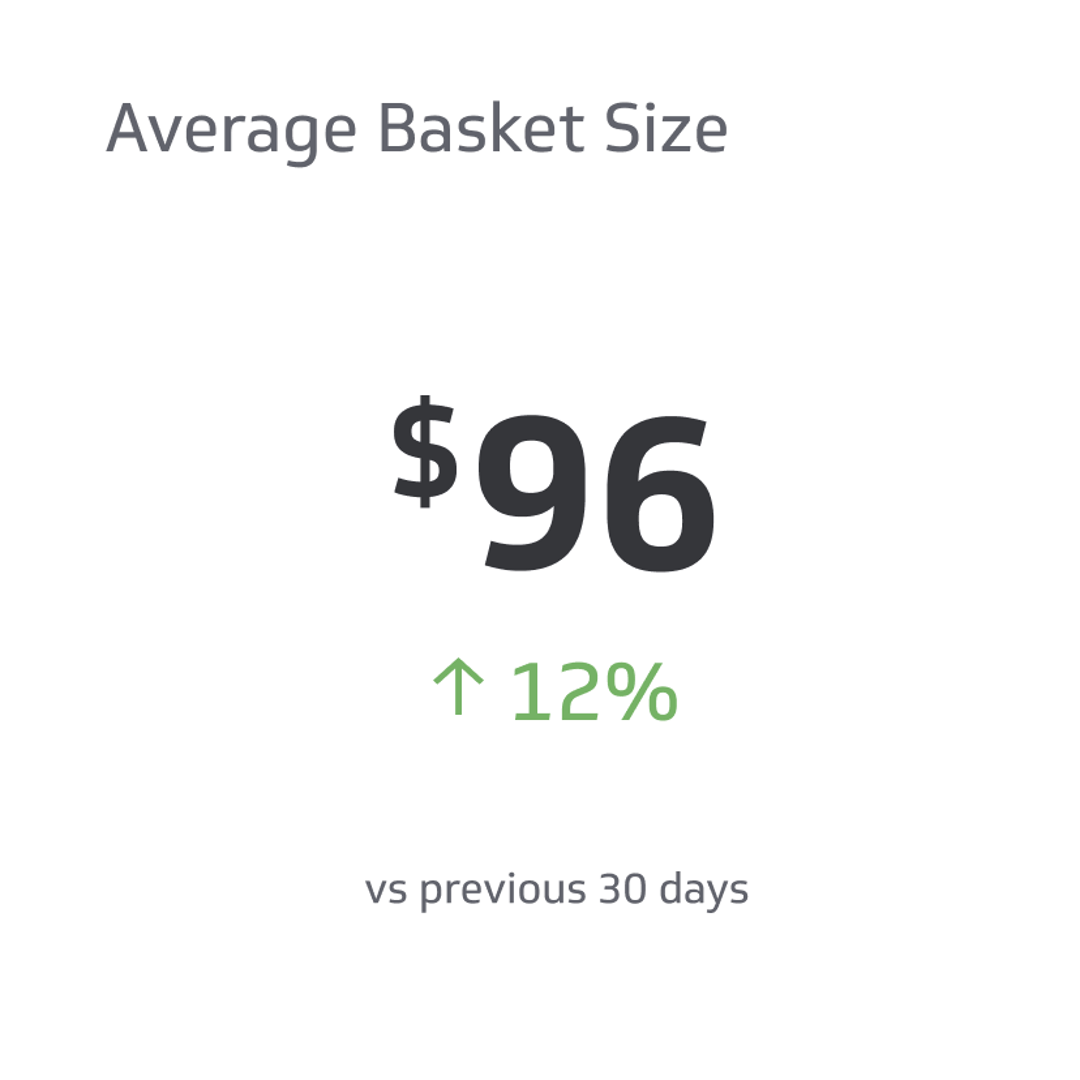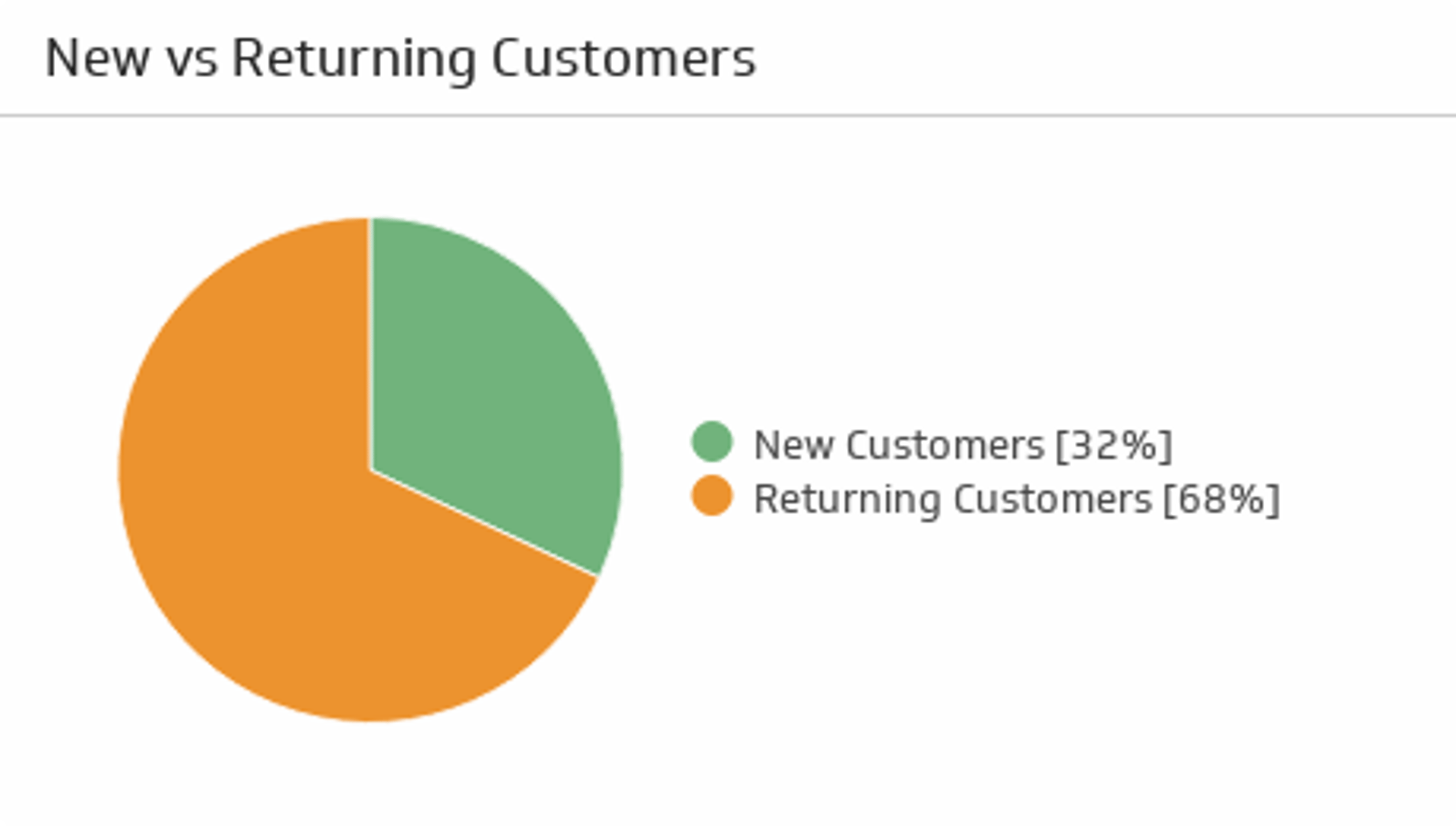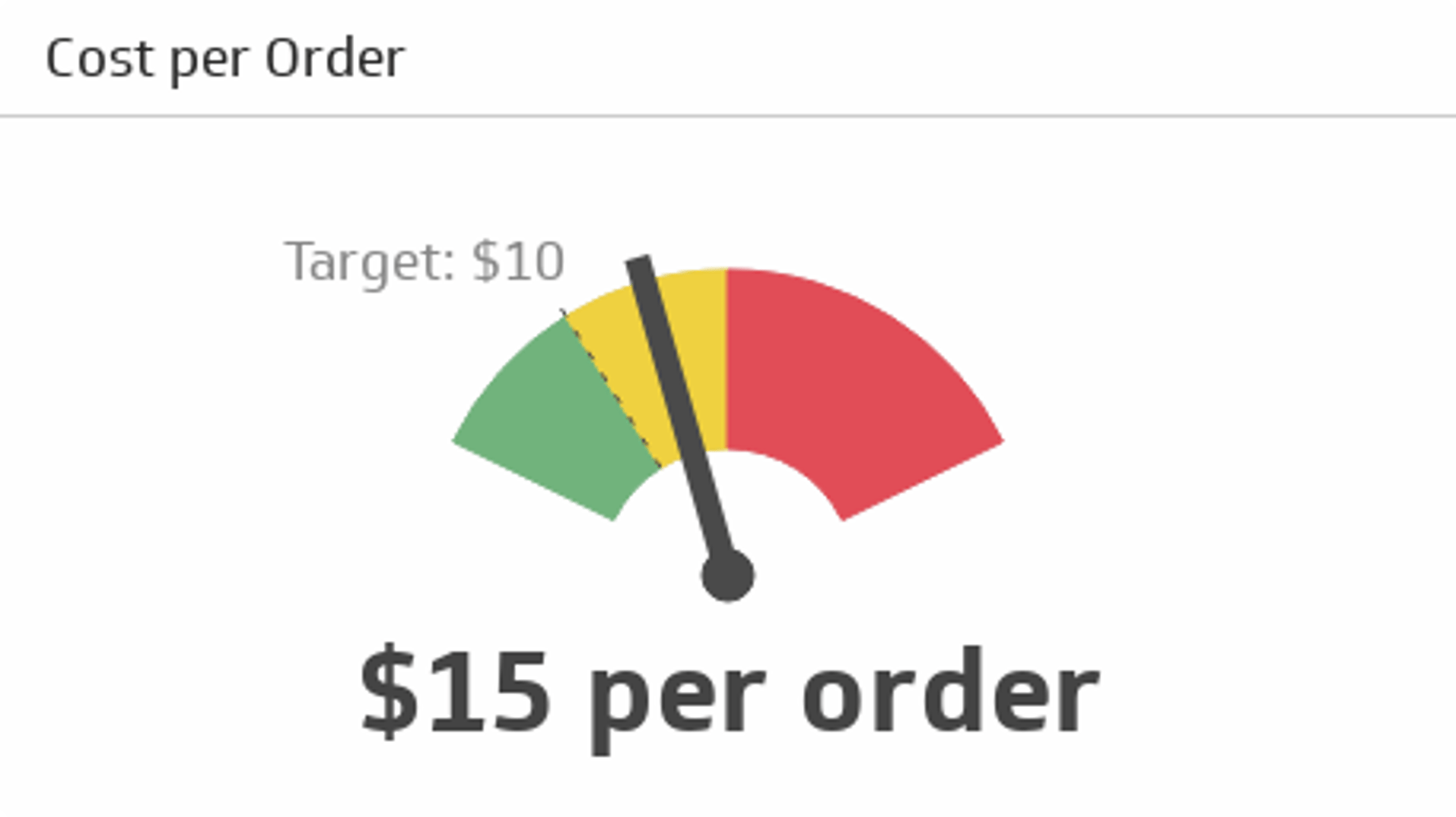Average Basket Size
Average basket size is an important KPI for both eCommerce and brick-and-mortar retailers.
Track all your Ecommerce KPIs in one place
Sign up for free and start making decisions for your business with confidence.

Regardless of what metrics you value, consider looking at your average basket size. Your average basket size is an interesting and relatively important metric that helps you make vital decisions based on pricing, store layout, and promotions.
If you are looking for a way to improve your eCommerce or your brick-and-mortar retail store, take the time to learn what average basket size is, what it means, and how to calculate it. This article has everything you need to know about your average basket size, including how to calculate it, why it matters, and how to improve it.
What Does Average Basket Size Mean?
Average basket size is an important KPI for both eCommerce and brick-and-mortar retailers. Essentially, it's the total average of the products the consumer orders within a single transaction. It's not counting the total value of the basket. It's calculating the size.
That small difference is important because another metric resembles the average basket size. That metric is known as the average basket value. While both metrics serve a distinct purpose, each supports the other in providing reliable data to retailers and eCommerce stores.
Why Does Average Basket Size Matter?
The average basket size matters because it helps understand customer purchasing behavior better. Plenty of KPIs measure the amount of money a business makes with each purchase, but KPIs like average basket size focus strictly on purchasing patterns.
Think about it this way. Average basket size provides insight into how consumers purchase, not how much they spend. That's important because it gives the business an idea of what items they value the most and which items they are buying in conjunction with others.
Businesses can detect trends and patterns by understanding what items customers frequently purchase together or how many each customer purchases on average. That's why average basket size can help determine sales, discounts, and marketing efforts.
How To Calculate Average Basket Size
To get your average basket size, divide the total number of units your business sold by your total transactions for that period. It's not complex to calculate, but having a visual example to understand better is still essential.
Consider this, say your business sells over 5,000 units and does so within 500 transactions. That means the average consumer purchased ten units of goods for each transaction. While that doesn't mean every consumer will purchase at least ten units per transaction, it's a good general idea of how much your consumer is willing to buy on average.
Here's your formula in case you want to visualize it even more:
ABS= Total units sold/ Total transaction
What Directly Affects Average Basket Size?
While there's plenty to consider, it's relatively easy to identify what directly affects your average basket size. Prices, products, discounts, promotions, and monthly trends affect your average basket size. For example, people will buy more things if they're cheaper than normal.
Discounts such as clearance sales directly influence your average basket size. Another direct influence is the default price itself. People will take advantage of flash sales when prices change because the opportunity is typically too good to pass up.
Your store layout also directly affects your average basket size. Believe it or not, if you make certain items easier or more tempting for people to buy, people will buy them. Take a retail store that puts gum, candy, and other add-on items near the checkout aisle.
Retailers put those items there because people will likely add them to their cart because they're generally less than a few dollars and are an extra treat for most. It's an up-selling technique that directly ties into your average basket size.
What Is a Good Average Basket Size?
Typically, a larger average basket size means the consumer spends more money, so the bigger the basket size, the better. Even so, factors like price are crucial when considering your average basket size, so it's important not to rely exclusively on your average basket size.
You want to use your average basket size as a support metric for your average order value. Your average order value indicates how much a consumer spends per transaction, regardless of the number of products they purchase.
Using these two metrics in conjunction gives you a good idea of a good average basket size for your business. It's entirely market dependent, but remember, you want consumers to purchase as much of your inventory as possible regardless of the value.
How To Improve Your Average Basket Size
Retailers may want to look at their store layout if their average basket size is relatively low. For success, retailers must put relevant items near each other. For example, hygiene items should be in one section, while kitchen items should be in another.
Identify items that work well together and make them easy for people to spot and reach. Additionally, it's crucial to have items that complement each other nearby. Both eCommerce and retailers can take advantage of this, but online stores approach it differently.
For example, when shopping on Amazon, the site lists a section of other items that people buy along with the item you're purchasing. Those items typically complement each other and increase the customer's cart size.
This technique is known as cross-selling, and it’s beneficial for bundling items together for the consumer. Retailers and eCommerce stores can take advantage of cross-selling techniques, but they do it differently.
For example, retailers can place K-cups for Keurig near the actual Keurig instead of the coffee section of your store. While it would make sense to keep caffeine products or beverages together, putting items that complement each other together is more important.
Another great way to improve your average basket size is to sell your inventory in bulk. Similar to how wholesalers operate, retailers and eCommerce businesses can take advantage of consumers who want to buy multiples of the same item.
Some businesses will provide a percentage discount, while others will give you an entire item for free. Items like toilet paper, bottled water, and condiments are perfect for selling in bulk. Regardless of your choice, take advantage of items you can sell in bulk.
Frequently Asked Questions
Here are answers to some additional questions you may have about average basket size.
What is the average basket value?
When people refer to the average basket value, they're not talking about the basket size. They're talking about how much the basket is worth. The total amount spent on that transaction is the only important thing for this metric.
What is the retail average basket size?
Retail average basket size is no different from normal average basket size regarding calculation and how it works. The only difference is that the metric focuses on calculating the average basket size for retail-based businesses.
What is the average basket size in eCommerce?
People strictly refer to online stores and digital carts when discussing eCommerce's average basket size. Business owners discern this difference because retailers and eCommerce businesses use their average basket size metric differently, but the calculation is the same.
Is average order value a better metric than average basket size?
Both metrics serve different purposes and must support each other to have value. So, one isn't better than the other, but both provide essential insight into customer shopping behavior.
What does it mean if you have a small average basket size?
A small average basket size isn't always a sign of alarm, but it typically indicates a few crucial factors, such as price. A smaller average basket size typically means product prices are higher than usual. For example, stores that mainly sell luxury goods.
Bottom Line
Your average basket size is a fantastic metric to calculate if you are looking to optimize your inventory flow. Try using promotions and discounts to your advantage and consider selling in bulk when the opportunity arises. Remember, everyone loves a good deal.
Even though your average basket size is important, you must remember to use other e-commerce metrics to support it. Keep gathering data and use these KPIs to the best of your abilities. It'll help improve your product, marketing, and pricing strategies.
Related Metrics & KPIs



